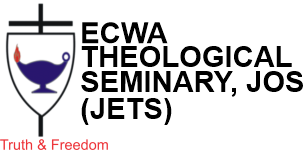Rethinking the Trinity & religious pluralism : an Augustinian assessment / Keith E. Johnson ; foreword by Geoffrey Wainwright.
By: Johnson, Keith E.
Material type: BookSeries: Strategic initiatives in evangelical theology: Publisher: Downers Grove, Ill. : IVP Academic, c2011Description: 286 p. ; 23 cm.ISBN: 9780830839025 (pbk. : alk. paper); 083083902X (pbk. : alk. paper).Other title: Rethinking the Trinity and religious pluralism.Subject(s): Augustine, Saint, Bishop of Hippo | Trinity -- History of doctrines | Religious pluralismDDC classification: 231/.04409015 Other classification: 6,12 Online resources: Inhaltsverzeichnis
BookSeries: Strategic initiatives in evangelical theology: Publisher: Downers Grove, Ill. : IVP Academic, c2011Description: 286 p. ; 23 cm.ISBN: 9780830839025 (pbk. : alk. paper); 083083902X (pbk. : alk. paper).Other title: Rethinking the Trinity and religious pluralism.Subject(s): Augustine, Saint, Bishop of Hippo | Trinity -- History of doctrines | Religious pluralismDDC classification: 231/.04409015 Other classification: 6,12 Online resources: Inhaltsverzeichnis | Item type | Current location | Call number | Status | Date due | Barcode |
|---|---|---|---|---|---|
 Books
Books
|
Byang Kato Research Library | BT111.3 .J64 2011 (Browse shelf) | Available | 001010296 |
Browsing Byang Kato Research Library Shelves Close shelf browser
| BT 111.3.G63 God the Holy trinity | BT 111.3 .G63 2006 Participating in God : | BT111.3 .H65 2014 The holy trinity in the life of the church / | BT111.3 .J64 2011 Rethinking the Trinity & religious pluralism : | BT111.3 .L45 2015 Traces of the Trinity : | BT111.3 .L48 2004 The Holy Trinity : | BT111.3 .M29 EXPLAINING THE TRINITY TO MUSLIMS |
Includes bibliographical references (p. [259]-277) and indexes.
The turn to the Trinity in the theology of religions -- Introducing the trinitarian theology of Augustine -- The economic trinity and the immanent trinity in the theology of religions -- Divine relations in the theology of religions -- Vestiges of the Trinity in the theology of religions -- Rethinking the relevance of the Trinity -- Reclaiming Augustine on the Trinity -- Colin Gunton's criticisms of Augustine's trinitarian theology -- Rereading Augustine.
Increased interest in the doctrine of the Trinity has led to its use in formulating new, pluralistic approaches to the theology of religions. But theologian Keith Johnson is convinced that many of these forays are not salutary for Christian faith.Here Johnson critically engages the diverse proposals of Mark Heim, Amos Yong, Jacques Dupuis and Raimundo Panikkar. Johnson grounds his evaluation in an extended study of St. Augustine's trinitarian theology. Not only has this doctor of the church provided an ecumenical theological standard down through the ages, but, Johnson argues, one that should continue to serve as a criterion for faithful trinitarian thinking now. Locating the points at which the four proposals diverge from the Augustinian norm, Johnson delves into essential aspects of the trinitarian doctrine including immanence and economy, the relations of the divine Persons, and the proper use of the vestigia trinitatis in creation. Johnson's critique of these intriguing experiments draws attention to the methodological errors that plague attempts to apply the doctrine of the Trinity to a wide range of topics. - Publisher.

There are no comments for this item.